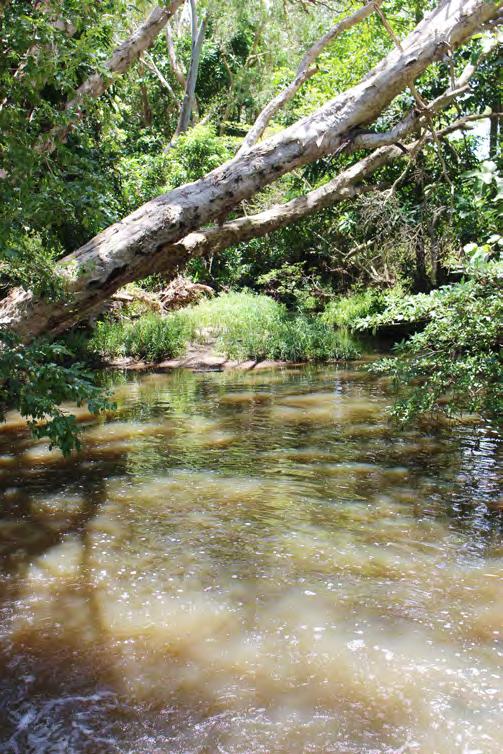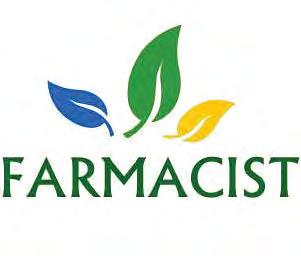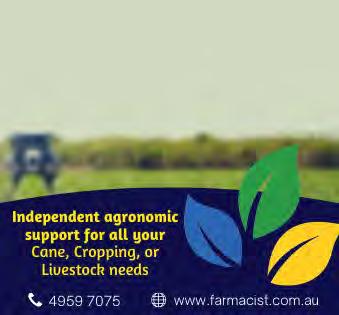
3 minute read
Community News 1
from Mackay Life
Stewardship Is Part Of Good Land Management
It was reassuring to have the efforts of the sugarcane growing industry – through programs like Smartcane BMP and Six Easy Steps- acknowledged in the UNESCO Report On The Joint World Heritage Centre/IUCN Reactive Monitoring Mission To The Great Barrier Reef (Australia), released at the end of November. Climate change remains the Reef’s major threat. The report called for acceleration of Smartcane BMP accreditations across Queensland's 4000 growers. Currently, around 40 percent of Queensland’s land under cane is accredited under the industry’s best management practice program. There are also many more growers who have embarked on the journey, and have registered and benchmarked their properties in the program. Across the Mackay and Plane Creek (Sarina) milling districts, 184 growers are fully accredited, representing 31,703.6 hectares of land operated under best management practices. It’s a 187.5 percent increase on the number of fully accredited growers in 2019, and an additional 20,978 hectares. This growth in accreditation is bolstered by the 624 growers across the region now benchmarked within Smartcane BMP. BMP is a process- Growers work with their BMP facilitators at Mackay Area Productivity Services (MAPS) and Plane Creek Productivity Services (PCPSL) to refine their on-farm practices and record keeping, so as to complete the core and optional modules (eight in all) of Smartcane BMP.
Advertisement
Stewardship is at the core of Smartcane BMP. Lots of growers have streamlines and gullys on-farm. They are protective of their patch and want to preserve it as part of their heritage. But also, economically, it makes sense that you keep any expensive inputs in the ground where they are meant to do a job: nourishing the crop. At every opportunity, we are encouraging our members to engage with Smartcane BMP and to connect with other programs like Sugar Research Australia’s Six Easy Steps (6ES) which puts in place a scientific process to calculate optimum fertiliser rates.
The industry is engaged with the quest for positive environmental outcomes. Locally, SRA staff have been engaged in their Cane to Creek Mackay Whitsunday in-paddock water quality monitoring project, investigating different farming practices and run-off results. Beyond accreditation, there are growers working with programs being delivered through natural resource management groups like Reef Catchments, such as the recently concluded Sandy Creek Project, a long-term project through the State Government Queensland Reef Water Quality Program. Others are working with the Mackay Whitsunday Water Quality Program. Canegrowers Mackay is an active member of the Healthy Rivers to Reef Partnership, and our CEO Kerry Latter sits on the committees for this and for the Mackay Whitsunday Water Quality Program funded under the Great Barrier Reef Foundation.
We thank both the State and Federal governments for their support in response to the UNESCO report, but also implore that now is the time to direct funding to growers to support activities like BMP, or to purchase precision ag equipment that helps minimize and target biocide application. Now is the time to get money on the ground. It is on farm where the real goals of improving water quality are achieved but to date funding has been directed towards other purposes and as a result limiting progress on farm.
The Queensland sugar industry is recognised worldwide for our sustainability credentials. This only comes as a result of our Smartcane program. This in fact has made us a preferred supplier for businesses seeking sustainable feedstock in the burgeoning global bioeconomy.
To fully participate in the bioeconomy we need to raise productivity within quality environmental parameters, therefore the suggestion by UNESCO in the report that governments should be buying up land as cane farmers retire, for the purposes of revegetation is absurd. Such an activity that actively reduces land under cane would spell the industry’s demise, rendering mills unviable, removing jobs across rural communities in farming, milling and peripheral services, and beyond: one dollar spent in cane multiplies to $6.40 across the regional economy. And all just as we move to contribute a carbon neutral crop to a renewable, sustainable food, fibre and fuel industry in a de-carbonising economy.
SPRING HAS SPRUNG
FINANCE FROM 2.45% FOR FARMALL RANGE*
Riparian systems are important parts of the Great Barrier Reef catchment

Jamie Franklin, Carmila

23-115 HP | CAB & ROPS TRACTORS AVAILABLE
*T&Cs apply, visit our website for details. Offers ends 31st December, 2022.







